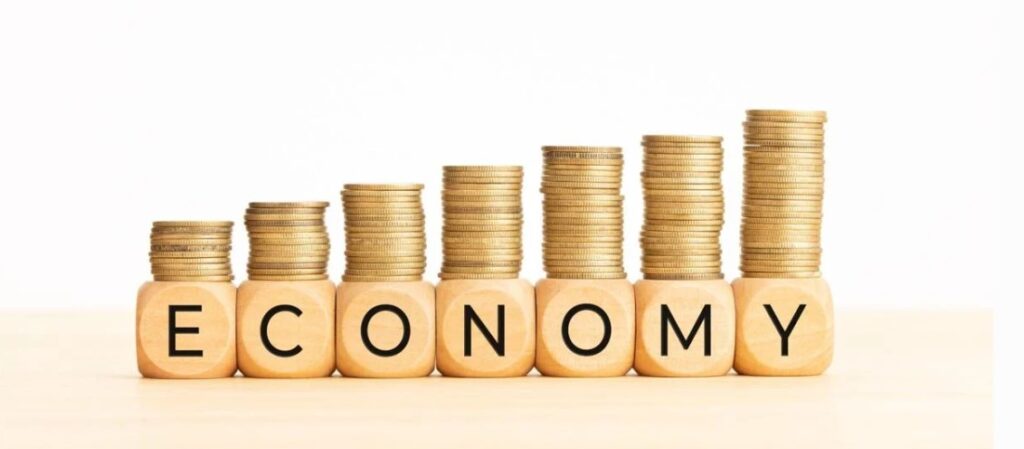Stears seeks measures to safeguard Nigeria’s economy
- EconomyUncategorized
- No Comment
- 58

Stears, a leading economic analysis and data-driven insights provider has called for proactive measures to safeguard the nation’s economic stability from inflation pressures in 2024.
Dumebi Oluwole, the senior economist, Stears, said this on Thursday in its 2024 African Outlook Report, shedding light on Nigeria’s macroeconomic landscape.
Ms Oluwole, noting that Nigeria is currently grappling with a high headline inflation rate of 28.2 per cent, projected that the average annual inflation rate for 2024 would range from 27.59 per cent to 31.85 per cent.
She anticipated that the Central Bank of Nigeria would persist with its tightening policy in the near term to address the inflationary pressures effectively.
Ms Oluwole said immediate action on dollar illiquidity was deemed crucial for achieving comprehensive inflation management, alongside other strategic interventions to enhance liquidity and stabilise the exchange rate.
“The elimination of petrol subsidies and the resultant surge in fuel prices has set off a chain reaction, significantly heightening the cost of living for consumers, escalating transportation expenses and contributing to an overall uptick in inflation.
“This, coupled with the devaluation of the naira, has led to elevated import costs, particularly in the context of persistent foreign exchange scarcity. The cumulative effect is complicating the economic landscape, adding layers to the challenges faced by both consumers and businesses.
“In the longer term, Stears emphasises the imperative for a holistic approach, calling for sustained efforts in addressing structural challenges that contribute to inflationary pressures,” she said.
Fadekemi Abiru, the head of insights at Stears, said the report highlighted the need for collaborative initiatives between the government, regulatory bodies, and private sectors to foster sustainable economic growth.
Ms Abiru said the company’s projections and recommendations were rooted in a thorough analysis of the current economic conditions.
“We understand the complexity of the economic landscape in Nigeria, and our 2024 African Outlook Report aims to provide valuable insights to policymakers, investors, and businesses navigating these challenging times.
“We believe that a combination of short-term measures and long-term strategies will be instrumental in steering Nigeria towards a path of resilience and growth,” she said.
Ms Abiru projected Africa’s growth to be at four per cent in 2024, up from 3.3 per cent in 2023, making it the second-highest globally after Asia (4.8 per cent).
She stated that East Africa would steal the spotlight, boasting consistently higher growth rates than the rest of the continent.
According to her, key drivers in this ascent include Ethiopia, Rwanda, Tanzania, Uganda, and Kenya, collectively contributing significantly to the region’s economic resurgence.
Also, Noelle Okwedy, Stears’ lead energy analyst, projected that Nigeria’s petrol import volumes would remain below 40 million litres per day in 2024.
For electricity, Okwedy indicated that in 2024, the groundwork for state electricity markets would begin to take shape even though cost-reflective tariffs in Nigeria’s power sector would remain elusive.
“The analysis highlights the volatility in Nigeria’s oil production levels, establishing a baseline of 1.4 million barrels per day contingent on the mitigation of vandalism and theft as indigenous oil companies acquire assets from international oil companies.
“There is potential for increased production through long-term, deep offshore investments. Within the next four years, these investments could propel production to 2 million barrels per day, marking a substantial enhancement in Nigeria’s energy output,” she said.
Bolatito Bickersteth, Stears’ financial analyst, said in 2024 that stricter regulations on financial technology (fintech) would deepen bank fintech partnerships.
She predicted a new era of collaboration and innovation, driven by upcoming stringent regulations on fintechs and the high costs associated with payment infrastructure development.
By NAN
https://gazettengr.com/stears-seeks-measures-to-safeguard-nigerias-economy/


